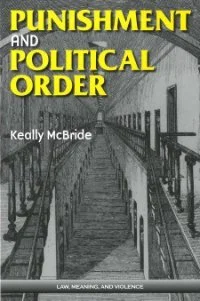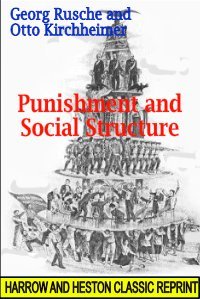By Really McBride.
“The primary purpose of this text is to look at punishment as a central problem of political order. Sociologists, legal scholars, and criminologists study penal regimes: the discipline of political science, with notable exceptions, has ceded this ground. 1 This is a terrible mistake: as I will demonstrate, punishment is both a uniquely revealing lens into how political regimes work as well as a central problem for political administration that requires careful negotiation of the stated ideals of a polity in the exercise of power.”
University of Michigan Press (2007) 205p.






